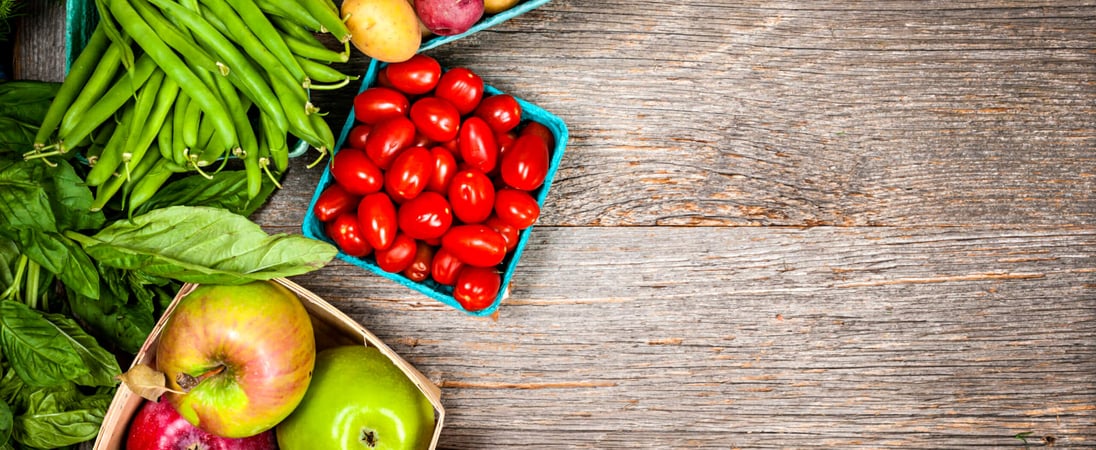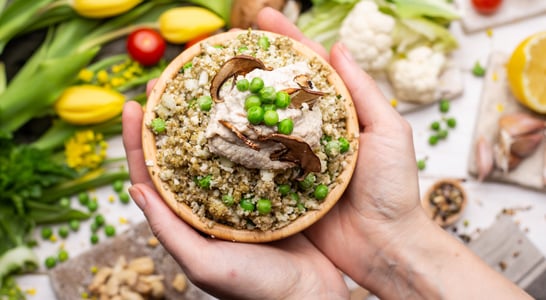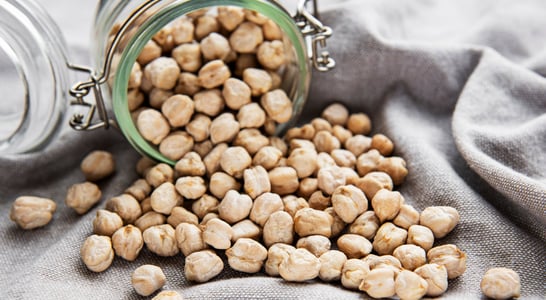
Veganuary
A time to try something new — plant-based eating can be both delicious and healthy. Join the fun and embrace a compassionate lifestyle!
Veganuary is a month-long celebration of all things vegan and was established to encourage non-vegans to try out the lifestyle. Often referred to as a lifestyle and not a diet, vegans who practice veganism aim to reduce the suffering of animals, help the planet and improve global health by not eating any animal products, such as meat, dairy, or eggs and also by abstaining from contributing to animal exploitation such as honey production, the creation of leather goods and the industrial farming of animals.
Although to be truly vegan, you really need to omit all animal products and not just those in your food, Veganuary Month focuses on changing people’s diets, allowing participants to move onto avoiding animal products in other lifestyle products more gradually.
What Do Vegans Eat?
It’s a common misconception that veganism involves just eating salad and grass. Although the diet does center around plant-based foods and for optimum health you should still try to eat a good portion of fruits and veggies, there are now thousands of alternative vegan versions of animal products, including cheese, meat, milk, and eggs, meaning that vegans can continue to eat all the things they love such as pizza, burgers, mac and cheese and ice-cream without eating animal products. Even restaurants have come to realize that there’s big money in the vegan market and many now offer exclusive vegan menus meaning that you don’t need to sacrifice taste or experience to follow a vegan diet.
What Products Do Vegans Avoid?
Aside from avoiding animal-foods, vegans also try to avoid buying or using products that contain animal ingredients, materials that have been derived from animals or products that have been tested on animals.
This includes things like wool that has come from sheep, silk from silkworms, leather from cows and honey from bees but there are thousands of animal-derived ingredients out there that go into products such as makeup, hand cream, clothing, and detergent, that you wouldn’t necessarily know came from animal origin.
This includes things such as lanolin (a grease extracted from sheep wool) gelatine (unless stated as vegetarian is derived from animal bones) and cochineal (a red dye derived from beetle shells!) Once you start looking, you’ll be surprised how many products contain animal-derived ingredients and how many are still tested on animals.
Why Celebrate Veganuary Month?
People try going vegan for Veganuary Month for a number of reasons but the three most common, as stated by the founders of the event themselves, are:
- To improve their energy levels and personal health. We all know that we should be eating more fruit and veg and perhaps the easiest way to ensure we do so is by giving up animal products and replacing them with plant-power. Even highly processed vegan alternatives to cheese and meat are often lower in saturated fat and other nasties and people tend to feel better almost immediately.
- For the animals and their welfare. Veganism is undeniably the most animal-friendly and ethical way to live and many people choose to go vegan purely for animal rights reasons.
- To help the environment. Finally, the impacts of animal agriculture on the environment are now widely understood and so for those looking to reduce their carbon footprint, veganism is the way to go.
Although these are the three most common reasons why people choose to celebrate Veganuary Month, there are many other reasons to give the month a try, including to help you lose weight, to detox from all the food you ate over the holidays, and to ward off diseases such as diabetes and heart disease.
How to Celebrate Veganuary Month
There really is only one way to celebrate Veganuary Month and that’s by going vegan. Although it can be daunting to jump into a new way of eating, especially one that removes so many products that we consume on a daily basis, the team at Veganuary has put together a great set of resources to help new starters stick to the diet.
Remember, Veganuary focuses on eating vegan food, so you won’t need to make any dramatic changes to the other products you buy (unless you want to of course). Over the course of Veganuary Month, you’ll learn first hand how many products contain animal products and will get to try so many new vegan alternatives, many of which you’ll find you prefer to the original. Some people choose to use Veganuary Month as a month-long detox from the over indulgences of the festive period, whereas others use it as a more permanent way to transition to veganism long term.
Whatever your reasons for celebrating Veganuary the most important thing is that you’re doing it – so swap that steak for a cauliflower steak and load your shopping cart with fruit and veggies for a healthy, sustainable and ethical January that your body will definitely thank you for.
History of Veganuary
Veganuary was launched in the UK in January 2014 by vegan founders Jane and Matthew, who quite simply want to see a vegan world. Like any mission, Jane and Matthew knew that they needed to start somewhere and that one of the biggest barriers to veganism was a simple lack of awareness.
This event was started as an attempt to change public opinion on veganism and to provide advice and support to those looking to transition. Held in January, the event is perfectly located to attract those making their New Year’s resolutions and is now one of the more popular New Year’s pledges.
Over the years since its first celebration in 2014, the event has grown and expanded overseas and is now followed all over the world, sparking considerable change in the vegan-food market and encouraging more food-brands to come out with vegan alternatives to their animal-based products. Growing from strength to strength each year, there are now more vegans on earth than ever, so there’s never been a better time to get on board.
Veganuary Timeline
500 BC
Vegetarianism is first recorded
Ancient Indian and Mediterranean cultures have been going without meat for thousands of years! But the first historical record or mention of this is by Pythagoras of Samos, Greek philosopher and mathematician.[1]
1806
Veganism is first tried in Europe
Health issues lead Dr. William Lambe to try a vegetables-only diet, which improved his health dramatically. He began prescribing the idea to patients and wrote about it in a book in 1815.[2]
1944
The term “vegan” is coined
David Watson, the founder of the UK Vegan Society, takes the beginning and end of the word “vegetarian” and turns it into “vegan”. This describes not only avoidance of eating meat, but also other animal based products such as dairy and eggs.[3]
2014
The first Veganuary is launched
Jumping in with the idea that January is a time for fresh starts and new habits, Veganuary was begun with the idea of motivating people to eat a vegan diet this month. It is also a UK non-for-profit organization run by Jane Land and Matthew Glover.[4]
2019
KFC launches vegan chicken
In a decidedly earth-friendly move, KFC released its vegan chicken burger on January 2, 2019–just in time for Veganuary of that year. The name? It’s the “Imposter Burger”.[5]
2019
Pub slump in UK blamed on Veganuary
Pubs and restaurants throughout the UK seemed to show a slow January this year, as veganism goes mainstream. While the pub owners might not be excited about this, it may just cause them to start getting on board and serving more vegan options, particularly for the younger generations![6]
2020
Veganuary grows in popularity
Just six years after its launch, Veganuary grows to officially include more than 450,000 people all over the world. Those who sign up by email get daily reminders and tips to help them thrive in the vegan lifestyle.[7]
Also in ...
View all holidaysPolar Bear Plunge Day
Taking a chilly plunge, all for a noble cause — uniting people in a frozen adventure to support those in need.
National Bloody Mary Day
Start your morning with a refreshing tomato juice and vodka cocktail, swap in different spirits or pair with crackers, olives and cheese.
Global Family Day
Each year, Global Family Day comes with opportunities to celebrate the importance of the family unit as a building block for a better tomorrow.
National Hangover Day
Spare a moment for anyone who has ever been to a New Year’s Eve party and had a bit too much to drink...
We think you may also like...
National Tofu Day (UK)
Try a healthier, often more eco-friendly option in your meals instead of meat. Try tofu stir-fry, tofu in taco bowls, or even a sweet, moist tofu-based dessert.








